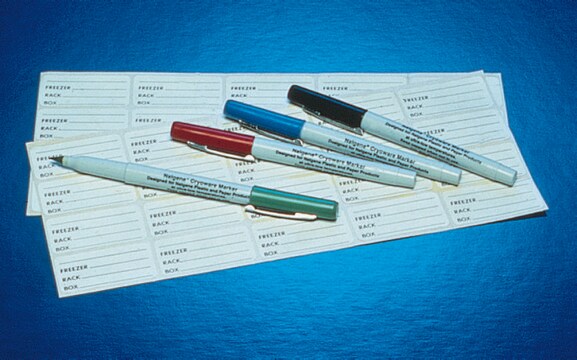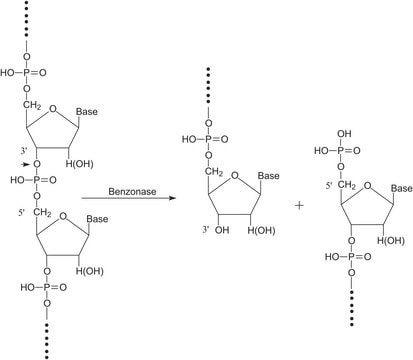推荐产品
生物源
mouse
抗體表格
purified antibody
無性繁殖
Ly9.7.144, monoclonal
分子量
calculated mol wt 73.14 kDa
物種活性
mouse
技術
flow cytometry: suitable
immunodepletion: suitable
immunofluorescence: suitable
同型
IgG1κ
Protein ID登錄號
UniProt登錄號
運輸包裝
dry ice
儲存溫度
−20°C
目標翻譯後修改
unmodified
特異性
Clone Ly9.7.144 detects T-lymphocyte surface antigen Ly-9 in murine cells. It targets an epitope with in the N-terminal Ig domain.
免疫原
300.19 mouse tumor cells transfected with full-length murine Ly9 protein.
應用
Anti-Ly9 (CD229), clone Ly9.7.144, Cat. No. MABF1991, is a mouse monoclonal antibody that detects T-lymphocyte surface antigen Ly-9 and has been tested for use as an Agonist and in Flow Cytometry, Immunofluorescence, Immunodepletion.
Quality Control Testing: Evaluated by Flow Cytometry in Mouse splenocytes.
Flow Cytometry Analysis: 1μg of this antibody detected Ly9 (CD229) in one million Mouse splenocytes.
Tested Applications: Flow Cytometry Analysis: A representative lot detected Ly9 (CD229) in Flow Cytometry applications (Sintes, J., et. al. (2013). J Immunol. 190(1):21-6; Cuenca, M., et. al. (2016). J Immunol. 196(2):726-37).
Agonist Analysis: A representative lot of this antibody induced a significant decrease in the production of IL-4 in wild-type mice. (Sintes, J., et. al. (2013). J Immunol. 190(1):21-6).
Immunodepletion Analysis: A representative lot of this antibody selectively depleted splenic MZ and B1 B cells in wild-type BALB/c mice. (Cuenca, M., et. al. (2016). J Immunol. 196(2):726-37; Cuenca, M., et. al. (2018). Eur J Immunol. 48(1):99-105).
Immunofluorescence Analysis: A representative lot detected Ly9 (CD229) in Immunofluorescence applications (Cuenca, M., et. al. (2016). J Immunol. 196(2):726-37).
Quality Control Testing: Evaluated by Flow Cytometry in Mouse splenocytes.
Flow Cytometry Analysis: 1μg of this antibody detected Ly9 (CD229) in one million Mouse splenocytes.
Tested Applications: Flow Cytometry Analysis: A representative lot detected Ly9 (CD229) in Flow Cytometry applications (Sintes, J., et. al. (2013). J Immunol. 190(1):21-6; Cuenca, M., et. al. (2016). J Immunol. 196(2):726-37).
Agonist Analysis: A representative lot of this antibody induced a significant decrease in the production of IL-4 in wild-type mice. (Sintes, J., et. al. (2013). J Immunol. 190(1):21-6).
Immunodepletion Analysis: A representative lot of this antibody selectively depleted splenic MZ and B1 B cells in wild-type BALB/c mice. (Cuenca, M., et. al. (2016). J Immunol. 196(2):726-37; Cuenca, M., et. al. (2018). Eur J Immunol. 48(1):99-105).
Immunofluorescence Analysis: A representative lot detected Ly9 (CD229) in Immunofluorescence applications (Cuenca, M., et. al. (2016). J Immunol. 196(2):726-37).
標靶描述
T-lymphocyte surface antigen Ly-9 (UniProt: Q01965; also known as Cell surface molecule Ly-9, Lymphocyte antigen 9, SLAM family member 3, SLAMF3, Signaling lymphocytic activation molecule 3, CD229) is encoded by the Ly9 (also known as Ly-9) gene (Gene ID: 17085) in murine species. Ly-9 is a single-pass type I membrane protein that serves as a homophilic cell surface receptor present on all lymphocytes and is highly expressed on innate like lymphocytes. Its activity is controlled by presence or absence of small cytoplasmic adapter proteins, SH2D1A/SAP and/or SH2D1B/EAT-2. Ly-9 plays a negative role in the signaling pathways required for innate-like lymphocyte (iNKT) development in the thymus. It also promotes T-cell differentiation into a helper T-cell Th17 phenotype leading to increased IL-17 secretion. Ly-9 is synthesized with a signal peptide (aa 1-47) that is cleaved off in the mature form. The mature form has an extracellular domain (aa 48-453), a short transmembrane domain (aa 454-474), and a cytoplasmic domain (aa 475-654). The extracellular domain contains two Ig-like V type (aa 48-158 and 250-362) and two Ig-like C type (aa 159-243 and 353-453) domains. In addition, LY-9 has two immunoreceptor tyrosine-based switch motifs (ITSM) motifs (aa 599-604 and 623-628), which mediate the interaction with the SH2 domain of SH2D1A and SH2D1B. Ly-9 deficient mice are reported to develop normally, but exhibit a significant difference in the distribution of thymocyte subsets compared to wild types. This antibody (clone Ly9.7.144) is shown to reduce the number of iNKT cells in the spleen and also reduce the absolute number of both NKT1 and NKT2 cells. (Ref.: Sintes, J., et al. (2013). J. Immunol. 190(1); 21-25; Cuenca, M et al., (2018). Eur. J. Immunol. 48(1); 99 105).
外觀
Purified mouse monoclonal antibody IgG1 in PBS without azide.
儲存和穩定性
Stable for 1 year at -20°C from date of receipt. Handling Recommendations: Upon receipt and prior to removing the cap, centrifuge the vial and gently mix the solution. Aliquot into microcentrifuge tubes and store at -20°C. Avoid repeated freeze/thaw cycles, which may damage IgG and affect product performance.
其他說明
Concentration: Please refer to the Certificate of Analysis for the lot-specific concentration.
免責聲明
Unless otherwise stated in our catalog or other company documentation accompanying the product(s), our products are intended for research use only and are not to be used for any other purpose, which includes but is not limited to, unauthorized commercial uses, in vitro diagnostic uses, ex vivo or in vivo therapeutic uses or any type of consumption or application to humans or animals.
我们的科学家团队拥有各种研究领域经验,包括生命科学、材料科学、化学合成、色谱、分析及许多其他领域.
联系技术服务部门







